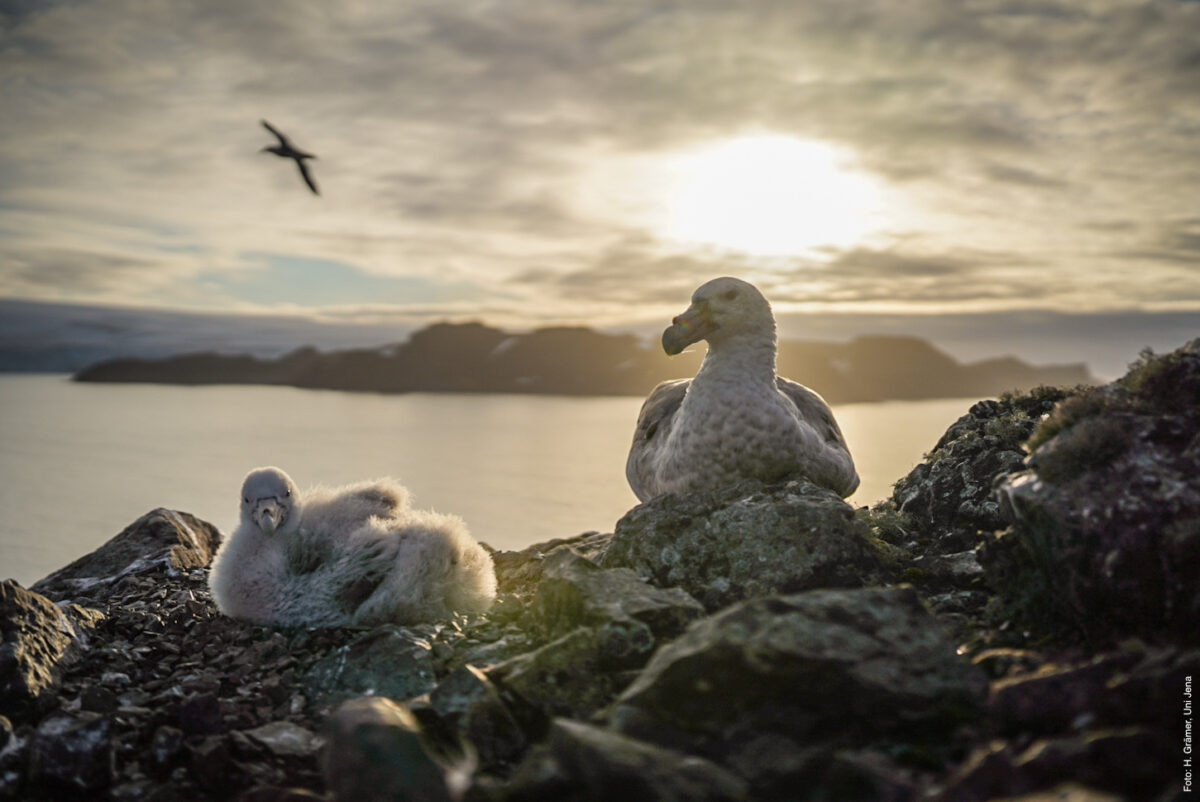The Fildes Region, one of the largest ice-free areas in Antarctica, is home to an animal and plant diversity that is rich in species by Antarctic standards. Seabirds and seals use the ice-free area for breeding in summer. This makes the region particularly important for science, but also attractive for Antarctic tourism. There are six research stations, several field huts and a landing strip for smaller and larger aircraft. In addition, the Fildes Region is located in an area with the currently strongest warming of mean air temperatures worldwide and is thus exposed to significant environmental changes.
German biologists have been studying the populations of breeding birds and seals in the Fildes Region in southwest King George Island since 1979. The surveys begun during this time have been continued since 2003 and supplemented with additional research topics. On the basis of this, various questions about the changes in the area in relation to environmental changes and human influences are being investigated.
Research questions
- How are breeding bird and seal populations developing in relation to current climate changes?
- How do penguins react to disturbances from drone overflights and visitors?
- How are the surrounding glacier areas developing?
- What changes does the local vegetation show?
- How and where does plastic enter the environment and what impact does it have on seabirds and seals?
Methods
- GPS- & GIS-based breeding bird mapping, recording of number of breeding pairs and breeding success
- Behavioural studies of penguins
- Analysis of aerial photographs and satellite images
- Vegetation mapping
- Collection of marine debris, examination of dead birds and faecal samples
Responsible persons
Christina Braun, Polar and Bird Ecology group, Institute of Ecology and Evolution, Friedrich-Schiller University Jena
Hannes Grämer, Polar and Bird Ecology group, Institute of Ecology and Evolution, Friedrich-Schiller University Jena
Umweltbundesamt: Terrestrisch-biologisches Monitoring auf der Fildes Peninsula (Maxwell Bay, Antarktis) (FKZ: FKZ 3721 1220 10)
